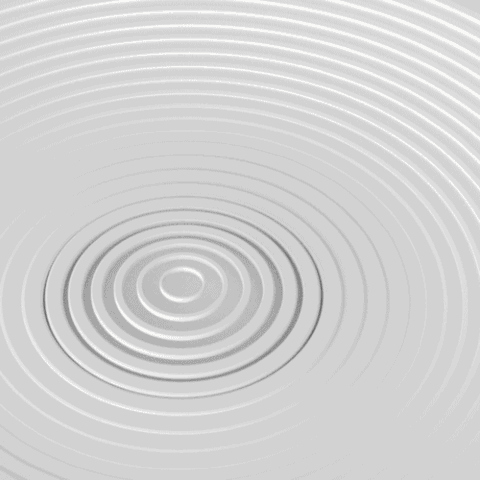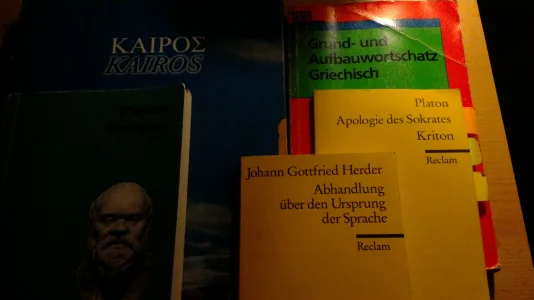Have you delved into Theosophistry? This, in my opinion of course, is a school of thought which tries to find the links between Eastern and Western PhilosophyThis is really interesting, I had no idea something similar to the concept existed in Buddhist Philosophy.
Within that philosophy, is turning a crisis into an opportunity something which the human agent has the free power to decide to do? For some reason, I thought that Buddhism conflicted with free will. But it's one of my blind spots, so I'm probably way off the mark.
You are using an out of date browser. It may not display this or other websites correctly.
You should upgrade or use an alternative browser.
You should upgrade or use an alternative browser.
What kind of philosophy do you enjoy the most?
- Thread starter Ren
- Start date
More options
Who Replied?Happy Phantom
Well-known member
- MBTI
- INFJ
All of them. Metaphysics, epistemology, ethics, politics and esthetics.
Littlelissa
Well-known member
- MBTI
- INFJ
- Enneagram
- 4w3
There are lots of different schools within Buddhism but mine is from the Mahayana branch, based on the lotus sutra. Other teachers prior to this think of karma as being fixed or 'immutable' so you have to work through the various 10 worlds or states of life through various life times accumulating positive karma in life time over life time and transcending the Lower life states of worlds: hell, hunger, anger animality. If you think about it, this is really impossible because you always will unwittingly make new 'negative' causes and also has a negative 'punitive' stance, e.g. Advocating aesthetic practices etc. / which really confuse the real issue of being a self referring autonomous being - deciding for ourselves what is valuable or not valuable - based on a profound respect for life. Therefore good and evil are viewed as polarities, and nothing is seperated.This is really interesting, I had no idea something similar to the concept existed in Buddhist Philosophy.
Within that philosophy, is turning a crisis into an opportunity something which the human agent has the free power to decide to do? For some reason, I thought that Buddhism conflicted with free will. But it's one of my blind spots, so I'm probably way off the mark.
...In this teaching all the 10 worlds from hell to Buddhahood are mutually inclusive and interrelated, each has the potential of each of the other 9 states. E.g. hell has the potential for buddhahood, as well as the 8 other worlds or states.
Therefore within this teaching is the potential to change 'immutable' karma and turn crisis into opportunity - we call it value creating.
The 10 worlds or states of life are; hell, hunger, animality, anger, learning &realisation, tranquility rapture, boghisatfa (helping others), and Buddhahood (enlightenment to the intrinsic Buddha nature of ourselves and others).
There is a recognition that we can change our life state and don't need an outside authority to do it and we also have a daily practice to help us do so.
I don't want to go on too much but just to mention an important principle related to this 'three thousand realms in a single moment of life'
That is a way of describing the instantaneous 'flexibility', for want of a better word - of reality. Just as quantum physics is telling us now. Amazingly Buddhist theory (shakamuni) knew all this centuries ago.
That's what I mean about changing your reality. Your mindset and intention (and prayer) can affect things - and everything is mutually dependent. So yeah, changing the shit into something great, it's a very empowering practice!
www.sgi-uk.org
www.sgi-usa.org
www.sgi.org
Last edited:
Ren
Seeker at heart
- MBTI
- INFJ
- Enneagram
- 146
Hiya man! Thanks for this, it got me thinking quite a bit. I’ll try to cover your main points with insights of my own.Yes I do, though not because I'm a Cartesian. I think we are using the word 'fundamental' to mean something very different. If I understood your question correctly, by 'fundamental' you mean something like: 'that which lies at the foundations of reality'. But this is not quite what I mean. In fact, I'm not even sure what it means to have 'foudations of reality'. What I mean is that knowledge is our window into reality. If something features in our best explanations, then we must treat that thing as actually existing. For example, 'space-time' features in the theory of relativity. Since this is our very best explanation of the laws of physics, it follows that we must treat 'space-time' as actually existing. No matter what our ontology is. To say 'space-time' does not exist amounts to saying that the theory of relativity is not a true explanation of reality.
Although it is true that what we know has no affect whatsoever on what actually exists, why should this matter? Knowledge is our window into what actually exists. It tells us what is really there, in reality. What's more, EVERY ontology -- no matter how seemingly infallible -- is subject to error and therefore refutation. The search for true knowledge is the best we can do. I would even go so far as to suggest that we have a moral imperative to discover truth. And since the discovery of new knowledge is constrained by epistemology, it seems to follow that epistemology is fundamental. This is what I mean. What are your thoughts?
When you say that if something features in our best explanations, then we must treat that thing as actually existing, I’m not sure if I would be so ready to accept the claim. I think I understand what you mean, and I can maybe see the Popper influence here. But suppose you explain something very well, and that explanation features (among other things) reference to a unicorn. I believe it is possible to give a very good explanation of something with reference to a unicorn. Does that mean the unicorn exists? (I am being half playful.)
Our minds have somehow made sense of the unicorn, we ‘know’ what it is, we have a good idea what it looks like. And yet, it doesn’t actually exist… or does it? Actually, Plato would probably say that we can conceptualise the unicorn because the Pure Form of the unicorn does exist somewhere. But that Pure Form is actually inaccessible to human knowledge. It is ontologically prior to it, he would say, I suppose. It is true that, in order to arrive at that conclusion, he thinks within his own framework, his own episteme, so in a way you have a point here, and although I could propose alternatives, I have no way to refute your point completely either.
There are many other examples of the limits of knowledge and the distortion of perception, and Descartes had the intellectual honesty to tackle many of them. Where I agree with you, though, is that these limitations should not necessarily oblige us to assume that there exists a ‘higher’ realm of purer truth, or more ‘fundamental’ principles than, say, scientific ones. It is also the opinion of many brilliant logical positivists that metaphysics itself is a bunch of nonsense, brimming with meaningless propositions.
Maybe a useful way to separate our two notions of fundamental would be to say that one term refers to an investigation into truth, and the other refers to an investigation into being. Or do you think that truth precedes being? That essence precedes existence…? (@Roobarb&Custard I found our adversary!) Fascinating stuff anyway, I look forward to your thoughts on this, and I'm sorry that I could not give clearer answers
Last edited:
Professor Snep
Smart. Sexy. Snep.
- MBTI
- Potions
- Enneagram
- Leviosaaa
Chinese philosphy


Ren
Seeker at heart
- MBTI
- INFJ
- Enneagram
- 146
Hi @Pin, the Nicomachean Ethics was actually the first philosophy book that I read in its entirety. I believe it was exactly 10 years ago.Aristotelian Philosophy: eudaemonia
Being the best person one can.
I have engaged with Aristotle in other areas since, but the idea that happiness is an activity, and the golden mean, have been with me ever since. You probably would be able to describe these much better than myself. Aristotle's books pack an incredibly dense intellectual punch!
- MBTI
- INFJ
- Enneagram
- 954 so/sx
Or do you think that truth precedes being? That essence precedes existence…?
Can they not exist simultaneously?


Ren
Seeker at heart
- MBTI
- INFJ
- Enneagram
- 146
Hi @Sandie33, I’m glad to be finally getting around to answering your message! There are so many messages that I still want to react to, but since this is philosophy, it’s never easy in few words and so it can take a while ^^’Thank you Ren for your reply; I'm still contemplating your earlier questions. Often I find I need to sleep on a thing before responding.
You make a strong set of points in your interpretation of my point. IMHO, Truth is in the end the final goal in any analysis. Now, Truth is subjective really, because each indivdual brings the facts to the final decision of what The Truth is. Which brings in the question, is one man's lie inevitably another man's truth? This I believe is why most legal systems are trying cases based on facts and not on truths; yet, many lawyers lead questioning with, for example, "Isn't it true Mr. Smith that on the night in question you were at 32 Main Street between the hours of 1 and 3 pm?" This gives Mr. Smith a choice. Does he reply, yes, that he was indeed there, and show others that he may have committed the crime in question, or, does he choose to chance that there was no witness to his presence at that place and time, and lie by saying no, that he was not there. You see in this way, the burden of proof still falls to the accuser.
In Anceient Greece, one of the primary purposes (jobs) of the Sophist was to teach Oratorical skills to students for a fee, (students mostly of wealth and status), as the majority of disputes and crimes were tried in the Arena and the better one could plead their case, the better chance they had to win.
When Sophists started training lower class students, again who could pay, the same Oratorical skills Plato was brought to fits. The main reason being it leveled the field between the upper class and lower class, and the lower class began to talk their way out of their troublesProtogoras was a huge advocate of equality in Learning.
Gorgias was another first generation Sophist but from Sicily. He was sent on purpose to Greece, and he lived there until he was 100 years old, about 40 years of influencing Greek Philosophy. He introduced paradoxes and paradoxical expression, for which he has been labelled the "father of sophistry". He also contributed to the diffusion of the Attic dialect as the language of literary prose...thereby ushering in the mainstream usage of rhetoric.
I understand what you mean about most legal systems having trying cases based on facts rather than truths. What I’m wondering, though, is whether we can conclude from this that truth is inherently (or always) subjective. Let’s take the example you used, about the murder case. Would you not agree that behind the practicalities of the proceedings there lies an objective truth, which is that somebody died? In fact, there might be a concatenation of objective truths. From the death of somebody, we could arrive at the murder of somebody, though this needs further evidence. Without this implicit framework of objective truth, I find that the subjective presentation of what brought it about would be impossible. Even language itself as a system of reference would be impossible. It must be possible to ascertain that, from a logical point of view, certain propositions are true, others false, and yet others meaningless. I think it would be a tough challenge to demonstrate that “If A is murdered, A dies” is not objectively true. And in the realm of synthetic propositions, I think it would be equally tough to demonstrate that a sentence like “JFK was killed” is not objectively true.
(By the way, I just want to throw in here that I hope I’m not sounding pedantic. English isn’t my first language and it’s been said to me that I can sound pedantic, so I want to careful about that!)
Your messages are always a treasure trove of information about the Sophists! I have bookmarked their entry on the Stanford Encyclopedia and look forward to reading it. I must admit that I didn’t know that Protagoras was so active in promoting equality in learning – I must have been under Plato’s baneful spell! Ha ha. This would be a good illustration of what you meant earlier when you said that Plato won in the history books. I knew that Protagoras taught for a fee, and that he didn’t care whether he taught aristocrats or plebeians so long as they had the money (which angered our dear elitist Plato). But I didn’t know that he was consciously promoting equality of access to learning. It must have been revolutionary, at the time.
Thank you for this bit about Gorgias. I read about some of his paradoxes in a collection of Presocratic readings a few years ago, and thought they were really interesting and profound, though I cannot exactly recall them now. The Gorgias in Plato is a great dialogue but I always felt like there was more to the man.
Ren
Seeker at heart
- MBTI
- INFJ
- Enneagram
- 146
Can they not exist simultaneously?
I believe they do, but I think "precedes" here is to be understood ontologically, if that make any sense.
- MBTI
- INFJ
- Enneagram
- 954 so/sx
but I think "precedes" here is to be understood ontologically
I meant it ontologically
Ren
Seeker at heart
- MBTI
- INFJ
- Enneagram
- 146
In a way I can't quite believe I just said "this must be understood ontologically". If I said that at the workplace, I'm pretty sure people would stop taking coffee breaks with me.I meant it ontologically
Anyway, ontologically...
- MBTI
- INFJ
- Enneagram
- 954 so/sx
I'm pretty sure people would stop taking coffee breaks with me.
I wouldn't! But I'm weird
I think it's complicated
If it weren't, the seven sages of Greece would have said their piece and we'd all have moved on

I'll look into it.
I hope so, I'm too lazy
Last edited:
Ren
Seeker at heart
- MBTI
- INFJ
- Enneagram
- 146
@Wyote Haha, thanks! I'd love to have a coffee conversation and discuss the pre-ontological conditions of the distinction between essence and existence with you.
PS. If I must be radically immodest, I do attempt something like the unification you mentioned in my own writing... I call it the 'open essence'. I remember the first time I tried to explain this to a non-Ni user, he looked at me with a vague sense of fright.
Perhaps Heidegger could be said to have come closest to that synthesis. Would you be familiar with Dasein?
PS. If I must be radically immodest, I do attempt something like the unification you mentioned in my own writing... I call it the 'open essence'. I remember the first time I tried to explain this to a non-Ni user, he looked at me with a vague sense of fright.
Perhaps Heidegger could be said to have come closest to that synthesis. Would you be familiar with Dasein?
Ginny
Shrrg
- MBTI
- INFJ IEI
- Enneagram
- 1w2 sx/sp
Would you be familiar with Dasein?
Not under that title, presumably.
I've had a look yesterday on amazon, nothing on Jung that I can afford right now, but lots of other stuff that I've put on my list for next week xD
Ren
Seeker at heart
- MBTI
- INFJ
- Enneagram
- 146
@Ginny some day we must get together and have a chat about German-speaking philosophers, there are so many linguistic distortions in the translation I'm sure!Not under that title, presumably.
I've had a look yesterday on amazon, nothing on Jung that I can afford right now, but lots of other stuff that I've put on my list for next week xD
Would the word Geworfenheit make any sense to you? In English, it's translated as thrownness. It's a crucial term, and I'm wondering how you would read it.
Ginny
Shrrg
- MBTI
- INFJ IEI
- Enneagram
- 1w2 sx/sp
[QUOTE="Ren, post: 1023187, member: 16070"Geworfenheit[/QUOTE]
Not one bit. Seeing how new I'm to this realm of philosophy. On looking it up, it does seem to make sense at first, but I'm not sure I got it all. Probably a bit late for that today.
When I read the preliminary definition I thought of the Latin saying Aliae iactae sunt. I don't really like the idea of everything being predetermined. I mean, there are so many other aspects besides the things you were born with, which can influence you and change you, your choices. I probably misread most of it, got to think about it properly first.
Not one bit. Seeing how new I'm to this realm of philosophy. On looking it up, it does seem to make sense at first, but I'm not sure I got it all. Probably a bit late for that today.
When I read the preliminary definition I thought of the Latin saying Aliae iactae sunt. I don't really like the idea of everything being predetermined. I mean, there are so many other aspects besides the things you were born with, which can influence you and change you, your choices. I probably misread most of it, got to think about it properly first.
Ren
Seeker at heart
- MBTI
- INFJ
- Enneagram
- 146
If this is reassuring to you, Geworfenheit as thrownness, in Heidegger's thought, does not at all mean that everything is predetermined. It is rather meant to capture the idea that, at every moment of life, the basic condition that defines us is not that we are self-conscious subjects freely deciding to relate to objects surrounding us, but rather, prior to that, that "we" are always thrown into a kind of alien world, with its own codes, behaviours, norms, and the like. "We" are thrown into it, and "we" must make sense of it, and come to define our egos through the making sense of this 'thrownness'.When I read the preliminary definition I thought of the Latin saying Aliae iactae sunt. I don't really like the idea of everything being predetermined. I mean, there are so many other aspects besides the things you were born with, which can influence you and change you, your choices. I probably misread most of it, got to think about it properly first.
I use "we" between inverted commas in the attempt to resist the pull of the self-conscious subject as-a-we, which is not what Heidegger is trying to get at. "We" is Dasein, "being-there", something prior to the self-conscious subject, its existential constitution in a sense.
I personally find it to be quite a beautiful, and profound, idea. And it is true that no English word quite captures it.
Last edited:
- MBTI
- INFJ
- Enneagram
- 954 so/sx
I call it the 'open essence'
Sounds as if you and I have been traveling a similar road my friend
he looked at me with a vague sense of fright.
Haha! I am familiar with that look
Would you be familiar with Dasein?
Only vaguely

